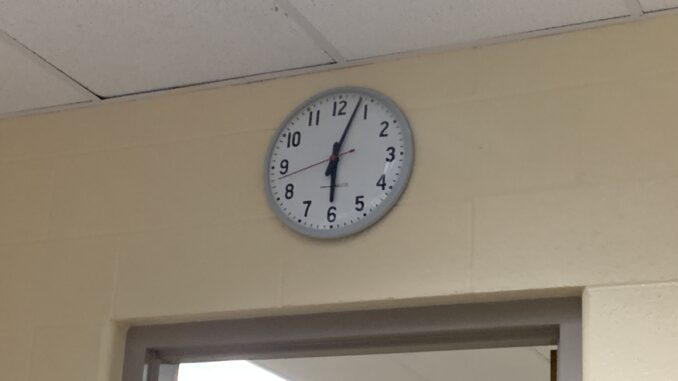
photo credit: Emma Clute
The biannual time change has caused much more divide and controversy than one might think. There are US territories in the Caribbean and Pacific that don’t observe Daylight Saving Time (DST) like Puerto Rico, the Virgin Islands, the Northern Mariana Islands, Guam and American Samoa. They’re close enough to the equator that there’s not a significant difference between sunrise and sunset times, so it wouldn’t benefit them to change the hour.
Although Hawaii is currently the only US state that has completely gotten rid of DST, there are 29 states that have introduced legislation to get rid of the time change and 19 states that have passed legislation to hold Daylight Savings year-round. Most of Arizona doesn’t follow DST with the exception of Navajo Nation.
DST was first implemented with the intention of saving energy and making better use of daylight, it was then reestablished during WW2 as a part of the war effort. The person credited with the idea of first suggesting the time change was Benjamin Franklin while he was living in Paris. William Willett was the man who put the idea into motion and passed it on to Parliament.
Germany was the first to implement DST and other European nations followed afterwards. The United States began using it in 1918 and several countries got rid of it after the war ended only to restart the system as a means of conserving energy throughout the year.
Many people credit DST with reducing the crime rate and preventing traffic accidents. Though the main reason was energy conservation there have been contradicting studies made throughout the years. A study made by the US Department of Transportation in 1975 showed that the United States saved one percent of energy during DST. A more recent study done in Indiana 2006 found that residential energy consumption increased by one percent. Sleep experts say the consequences of disrupting our sleep schedules so often outweigh the good that comes from DST.
Seeing all the effects put together, DST has its pros and cons. I have no issues with keeping it in place. I understand both sides that say it’s useless and the others who say it’s beneficial. I say we should keep it in place in the states that have it now. Not only have people had DST for so long that the shift would be very sudden, but the states who don’t benefit from it will stay content without.


